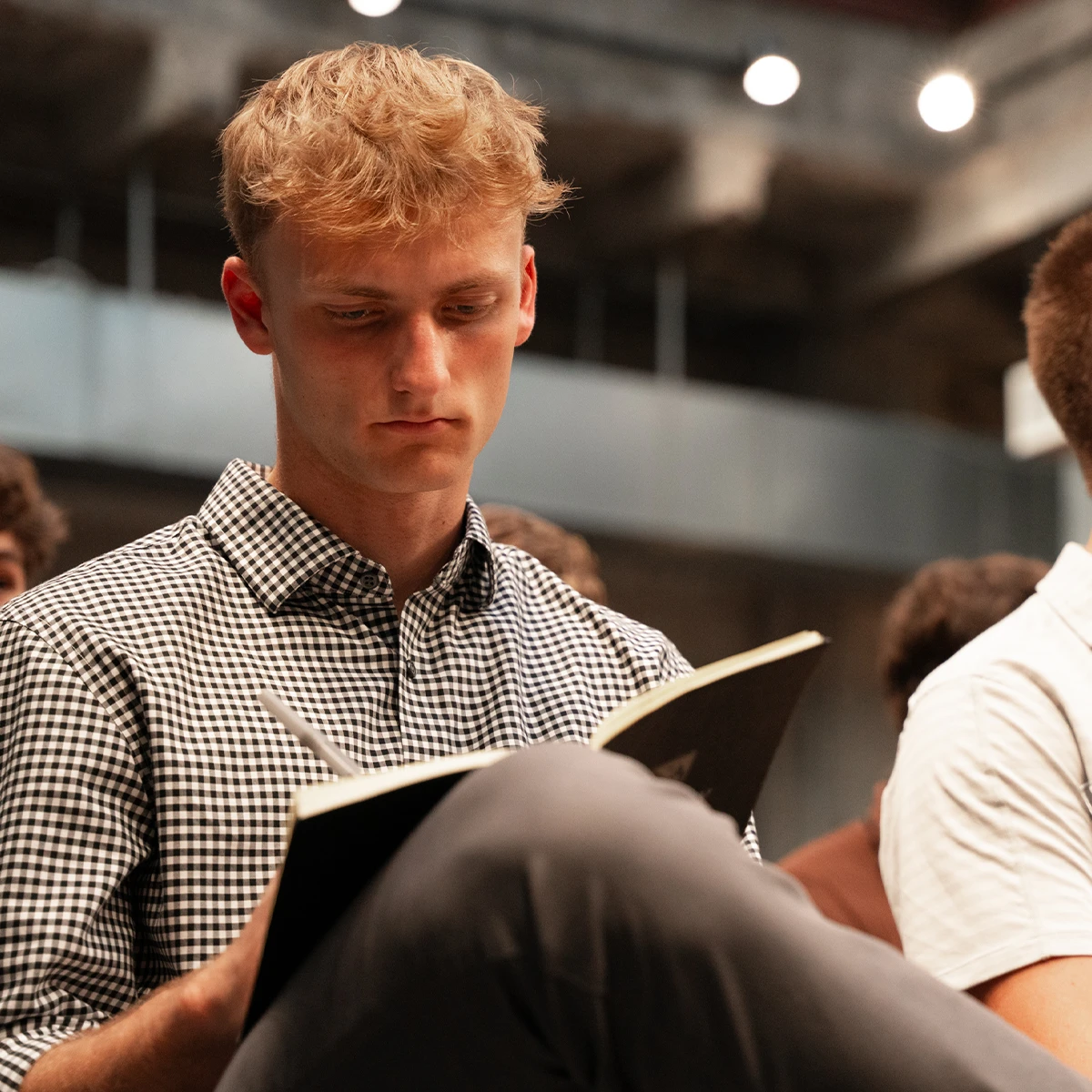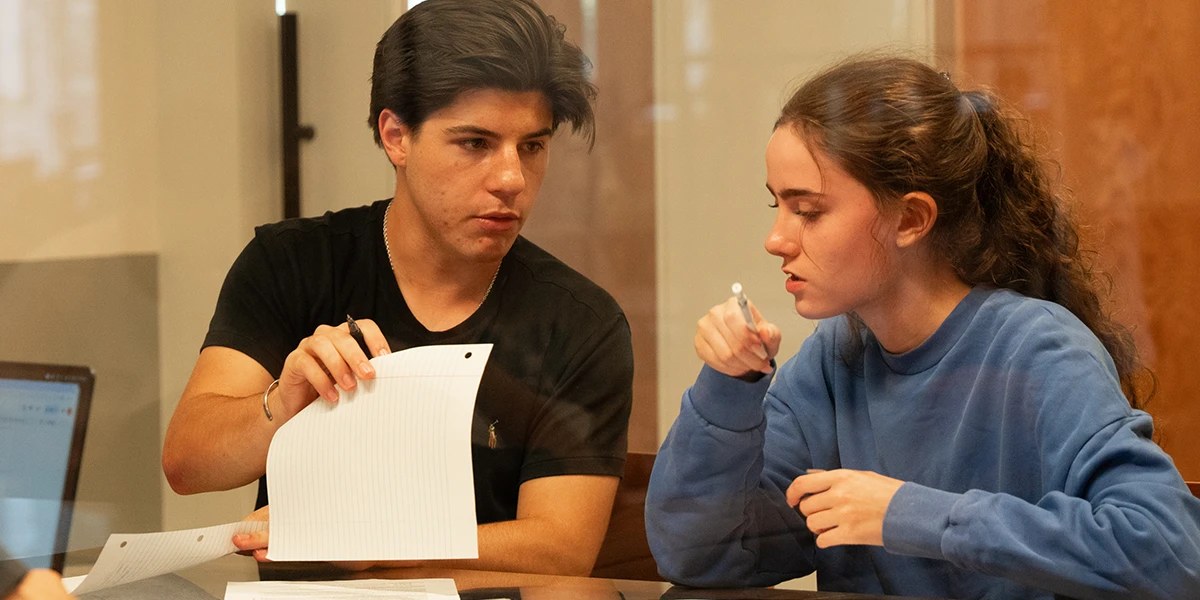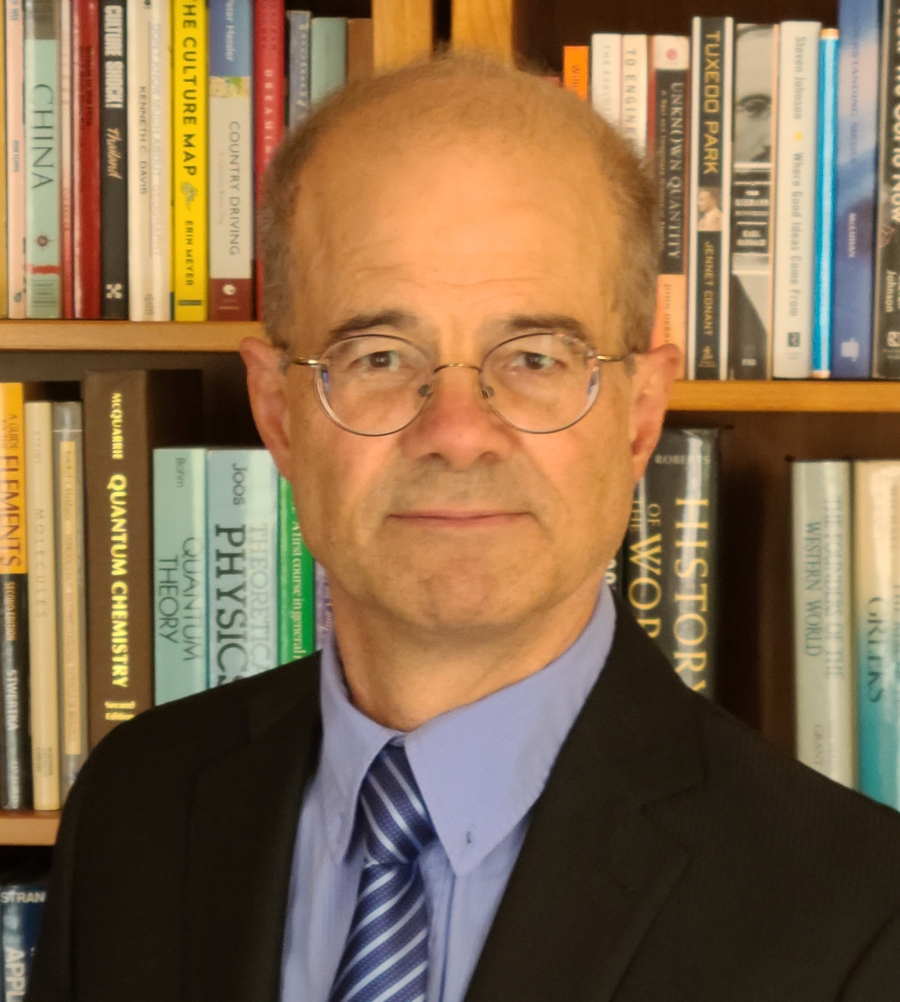High School Honors Programs



program
overview
At the University of Austin, we believe education begins with boldness, inquiry, and a deep commitment to the pursuit of truth. In this immersive pre-college honors program, high school students experience the spirit of UATX firsthand.
Through small seminars, talks, and social activities, students take on rigorous college-level work while building the habits of intellectual courage and lively community that define UATX, meeting students and faculty, and learning for themselves what an education here entails.
In the words of past high school students:
- “Although I had known the mission of UATX before visiting, I was truly amazed at how that mission was not a mere statement, but a living ideal.”
- “So good it can’t compare.”
- “This experience has been once in a lifetime.”
24
Sampling of Courses

Clay Greene
Judgments of taste about works of art often cluster, but people tend to defend their own taste passionately, even when they divert from the norm. It is as if having one’s own idea of beauty is experienced as a basic human right, and people fight for their taste almost as if fighting for their lives. Given this variety, can we say that beauty has an objective basis? In this class, we explore this question and possible answers, looking at answers emerging from human biology, the nature of God, or our social life.

J. Michael Hoffpauir
Socrates was the first to bring philosophy down from the heavens and place it in cities. As his reward, Athens executed him. This seminar examines two dialogues where Plato has Socrates defend the philosophic life, the Apology of Socrates and the Crito, to uncover something of the philosophic life, recover the demands cities must place on citizens, and consider whether the two are reconcilable.

Chris Nadon
Read Jefferson’s Declaration of Independence, Lincoln’s Gettysburg Address, and Lincoln’s Second Inaugural Address. Together, these works invite us to grapple with the philosophic basis of American political life—its ideals, its contradictions, and its reckoning with slavery.

Eliah Overbey
Mars is 140 million miles away, and everything between here and there wants to kill you. Cosmic radiation? Check. Bone-melting microgravity? Yup. No oxygen, freezing temperatures, and months of isolation? Absolutely. Follow the global space race as superpowers and billionaires compete to plant the first flag on Mars and discover how scientists plan to bioengineer the ultimate space-ready human. Your DNA might need an upgrade.

Allen Porter
Delve into the bold promises and perils of transhumanism. Explore visions of technologically enhanced humans and posthumans, and consider the moral, political, and even religious dimensions of this emerging movement.

Clinton Staley
This course explores the nature, power, and limits of artificial intelligence—from how large language models like ChatGPT work to the ethical and philosophical questions they raise. Students will experiment with AI chatbots, learn the basics of machine learning, and consider issues of copyright, liability, and employment in an AI-driven world. It concludes with a discussion of human-level intelligence and consciousness: could an AI ever truly think?
.jpg)
Bob Wright
As the largest port in New England, Boston has long been one of America's most important financial centers. This course traces its most important innovations, from fiat paper money in 1690 and bank clearinghouses in the early 19th century to credit unions and mutual funds in the 20th. It concludes with an overview of Boston's continuing role in crypto, Fintech, and DeFi.
2023 courses
session 1
June 18-24, 2023

Science & Christianity
Do Christianity and science flourish together, mutually informing and enriching one other, or are they fundamentally at odds?
In this course, we will examine major points of tension and synergy between Christianity and science — considering evolution, extraterrestrial intelligence, consciousness, and particulars of the Christian faith. Through open discussion, students will be encouraged to think more deeply about their own beliefs. Readings will include works by Joseph Ratzinger (Pope Benedict XVI), Thomas Nagel, David Bentley Hart, John F. Haught, Rabbi Jonathan Sacks, and Bishop Robert Barron.

The Psychology of Morality
In this seminar, we will explore the psychological factors that influence moral beliefs and behaviors.
We will consider the origins and development of moral reasoning, the role of intuitions and emotions in moral considerations, and the cultural and social factors that shape judgments of right and wrong. Students will learn about psychological theories and research on morality, and will have the opportunity to analyze and discuss the polarization of moral views, political correctness, the disconnect between intentions and actions, and why well-meaning people disagree. Readings will include works by Jonathan Haidt, Paul Bloom, and Geoffrey Goodwin.
.webp)
Writing Sexual Politics
Political narratives often attempt to reduce or flatten the complexity of human experience. Yet, sex and the realities of gender imbalance require more subtlety than is often afforded by the writers of standard feminist texts.
In this course, we will (i) consider how to write and think in a rigorous manner about issues of sexual politics and (ii) tackle the nuances and intricacies of such issues without resorting to easy or reductive political narratives. Readings will include works by Simone De Beauvoir, Joan Didion, Virginia Woolf, and Zadie Smith.

Anglo-American Grand Strategy
The United States has been the predominant power in global politics since the end of the Second World War. Taking over from the British, America has pursued a grand strategy focused on safeguarding the maritime, global, and commercial order — a strategy that has been shaped by both domestic and foreign interests.
In this seminar, students will examine the history of Anglo-American grand strategy with an eye toward future global power struggles. Readings will include Walter Russell Mead’s God & Gold and select Wall Street Journal columns.
session 2
June 25-July 1, 2023

Racial Inequality in America
This seminar surveys the social disadvantage of African Americans in the United States from the perspectives of economics, sociology, politics, and history.
Students will be encouraged to take a holistic view of the relevant issues including racial affirmative action, reparations for past injustices, and inequalities in the criminal justice system. Readings will include works by Thomas Sowell, Glenn Loury, Brendan O'Flaherty, and Rajiv Sethi.

Conservatives & Reactionaries
In journalism, and even in scholarship, the terms conservative and reactionary are often used interchangeably notwithstanding important conceptual differences between them.
We will first explore these differences, and then discuss contemporary political debates on the right in light of them. Readings will include works by Edmund Burke, William F. Buckley, Eric Voegelin, Adrian Vermeule, Patrick Deneen, and Rod Dreher.

The Invasion of Ideology into Evolutionary Biology
In this course, we will examine the intrusion of ideology in biology. We will focus on five topics: (i) sexual selection and the nature of sex and gender (is sex binary?); (ii) genetic variation behind human traits (heritability of traits); (iii) human population genetics (are there human races?); (iv) evolutionary psychology (do men and women have different evolved behaviors?); and (v) the role of indigenous knowledge in biology (are there other ways of knowing?).
The course will have lectures and debates focusing on controversial areas; sides will be assigned and students may have to defend positions with which they personally disagree. Readings will include works by Steve Stewart-Williams and various scientific papers.

The Battle of the Sexes
At present, relations between men and women are shot through with a dreary political moralism. There is little sense of play, or delighting in sexual differences. How did we get to this point? Whence our determination to feminize the male, butch up the female, and conceive the act of love on the model of a legal contract? How might this trajectory express a central tendency of our broader political regime? Is there a way out?
To answer these questions, we will read a collection of historical works, cultural criticism, and political philosophy. Readings will include works by William Shakespeare, Christopher Lasch, Ivan Illich, and Camille Paglia, as well as selections from the Book of Genesis.
View previous Forbidden courseS
2022 courses
session 1
June 18-24, 2022

Critical Thinking and Freedom of Expression
Readings include selections from John Stuart Mill, Kathleen Stock, Stephen Feldman, and more.

Global Warming
Readings include selections from SciTechnol, Scripps Institution of Oceanography (USDC), Bulletin of the Atomic Scientists, Proceedings of the National Academy of Sciences, The Review of Economics and Statistics, and more.

Freedom and Unfreedom: Lesson of the 20th Century
Readings include selections from Aleksandr Solzhenitsyn, Czesław Miłosz, George Orwell, Margaret Atwood, Sinclair Lewis, and more.

The Psychology of Social Status
Readings include selections from Pierre Bourdieu, Charles Murray, Robert Abelson, Paul Fussell, and more.
session 2
June 25-July 1, 2022

The Opium of Ideology
Readings include selections from Aristotle, Fyodor Dostoevsky, George Orwell, Soren Kierkegaard, Alexis de Tocqueville, the Bible, and more.

Capitalism: Tragedy or Triumph?
Readings include selections from Ludwig von Mises, David Harvey, Deirdre McCloskey, The Communist Manifesto, and more.

Varieties of Feminism and their Political Subjects
Readings include selections of John Stuart Mill, Kimberlé Crenshaw, Mary Harrington, Catherine A. MacKinnon, and more.

Learning from Native Sons: The Pain, Rage, and Hope of America's Most Loyal Critics
Readings include selections from Frederick Douglass, W.E.B. Du Bois, Booker T. Washington, James Baldwin, Ta-Nehisi Coates, and more.
details And Requirements
Admissions
Applications are evaluated based on basic eligibility and standardized test scores (SAT, ACT, CLT, PSAT, and others). Students who do not have test scores may submit an unofficial copy of their high school transcript to admissions@uaustin.org for additional consideration.
Students admitted to UATX’s full undergraduate program are automatically admitted to all High School Honors Programs. High school applicants with qualifying test scores (SAT ≥ 1460, ACT ≥ 33, or CLT ≥ 105) also receive automatic admission.
Eligibility
UATX’s high school program is designed for high school sophomores, juniors, and seniors. Participants must be at least 14 years old and enrolled in high school before the start of the program to apply.
Cost
Completely free (meals included). Participants cover their own travel/lodging.
Location & Dates
- January 31, 2026 | Honors D.C. (Falls Church, Virginia)
- February 28 - March 1, 2026 | Honors Phoenix
- April 2026 Dates TBA | Honors San Francisco Bay (Menlo Park, California)
- April 2026 Dates TBA | Honors NYC
- May 2-3, 2026 | Honors Boston
- June 20-21, 2026 | Honors Austin at UATX
Applications are due one week before each program start.
Parental supervision
Because this is not an overnight program, students traveling from outside the host city are required to make their own arrangements for lodging. The University of Austin can neither provide housing nor assist with housing requests. The University is not responsible for supervising, chaperoning, or otherwise caring for students, and all participants are required to have adult supervision outside program hours.
UATX's high school honors program is a non-credit enrichment program. Students may not earn continuing education credits, credit hours, or a diploma for participation.
Contact admissions@uaustin.org with questions.














.svg)





















